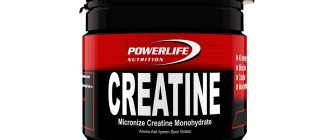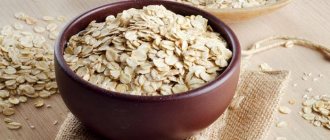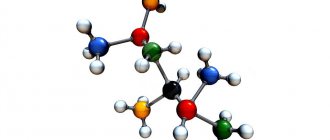What is the difference between BCAA and protein?
Our articles already contain a lot of information about protein, about the methods of its production and its types. Protein differs in its raw material - plant or animal sources, as well as in the degree of absorption (fast and slow). For example, casein is partially digested from 1 to 8 hours, and whey isolates and hydrolysates from 30 to 60 minutes. But the essence of protein is that it is large protein molecules obtained during the production process - filtered and dried.
And BCAA are essential branched chain amino acids obtained through the breakdown of protein. That is, amino acids are the components of a protein molecule. This means that BCAA molecules are absorbed much faster, since the body skips the process of protein breakdown into amino acids with the help of enzymes. Typically, BCAA amino acids - leucine, isoleucine, valine - are absorbed in 20-30 minutes.
If protein can include, in addition to protein, many ingredients - fats, carbohydrates (sugar and fiber), vitamins, minerals, all amino acids, both essential and essential, enzymes and sometimes even creatine, then BCAA contains only 3 types of amino acids in different proportions , you can find 2:1:1 or 4:1:1 (the first indicator is leucine).
So, amino acids are the constituent particles of protein molecules, taking a protein supplement, ultimately the product breaks down into the same amino acids, but the process takes longer, and the amount of the same BCAA may be much less. In addition, additional ingredients can help increase not only muscle mass, but also subcutaneous fat and retain excess water in the body. While BCAA promote the gain of exclusively dry mass and quickly prevent catabolism - muscle destruction.
Proteins
Blackstone Labs Isolation
Super-pure and super-tasty whey protein isolate! Contains 24 grams per serving, 5.5 of which are essential amino acids BCAA! This protein is a godsend for those who are dry or want to gain high-quality muscle mass. Available in interesting and unique flavors, it can be taken both as a standard cocktail and as a base for healthy breakfasts and desserts.
What is better to choose - BCAA or protein, and for what purposes?
We’ve sorted out the difference, now let’s find out the benefits of individual supplements in relation to the athlete’s goals.
If the goal of training is to gain muscle mass, you should pay attention to protein, and several types - fast and slow. In this case, protein acts as a food replacement for the athlete after training and during the day. Fast proteins - quickly restore, saturate with material for muscle growth, both proteins and carbohydrates, and slow proteins - take a long time to digest for constant saturation with protein, even during a night's sleep.
This means that for those who are gaining weight, it is better to take protein, and choose its components and dosages depending on the constitution, indications, form of the protein and price.
As for amino acids, they are able to quickly restore the body, ensuring the synthesis of new cells, and also quickly prevent catabolism, but BCAA are not able to saturate with protein for a long time. Yes, and you need to eat more food with them, since they do not cancel or supplement the daily need for dietary supplements, unlike protein.
But BCAA are best suited for those who are cutting, dieting, or simply want to quickly restore muscles after hard training, and not only strength training, but also aerobic training.
There is nothing unnecessary in BCAA, no ingredients in the form of sugar, which complicates the weight loss process, especially important for diabetes and those people who limit sugar in their diet.
When is the best time to take essential amino acids and protein?
It is better to take protein 2 times a day:
- immediately after training;
- and during the day (morning, afternoon, evening) depending on its type according to the manufacturer’s recommendations.
You can also take protein an hour before training, if it is not possible to eat on time, but not earlier.
Amino acids are also taken in 2 servings (depending on the brand) of powder or tablet form per day:
- It is better to take the first one immediately after sleep, and after half an hour have breakfast;
- and the second - before training 30 minutes.
Also, on a rest day , BCAA can be taken at any time if there is a large gap between meals to prevent catabolism.
Is it possible to take BCAA and protein together and how to do it correctly
BCAA and protein can be taken together, but not at one time, but evenly dividing the portions of the supplements throughout the day.
Can be consumed on training days according to the following scheme:
- In the morning after sleep: one serving of BCAA or whey protein of your choice.
- Pre-workout: one serving of BCAA.
- Post-workout: Whey protein.
- In the evening or at night, you can take complex protein or casein (if available).
BCAA
Killer Labz Brute BCAA
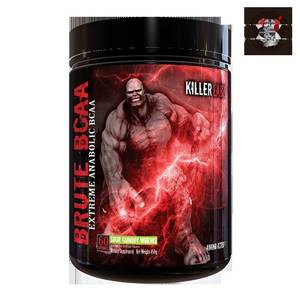
Super-complex BCAA, which contains 6 g of Isoleucine, Valine and Leucine per serving + Taurine, Glutamine and Alanine, which improve the gain of quality mass. The product contains Epicatechin, which reduces the production of myostatin and provides unlimited muscle growth, as well as Laxogenin, which is conditionally related to SARMs and gives a number of effects: accelerating protein synthesis by 200%, rapid recovery after training, protecting muscles from catabolism.
Benefits of Amino Acids

The following advantages speak in favor of the use of complexes:
- Does not require digestion. Complexes are absorbed much faster than proteins. The latter first require preliminary breakdown into amino acids. The difference in the assimilation process is up to one hour. It may be longer or shorter. It all depends on the type of protein. This difference is not significant even for a training person, so this advantage cannot be called significant.
- Contain a minimal amount of carbohydrates and fats. Most of the complexes on sale contain virtually no impurities. Proteins contain about 5% fat and 10-15% carbohydrates. Amino acids are great for those who want to lose weight. There are proteins with a minimum amount of fats and carbohydrates that are not inferior to complexes in this aspect.
- Much more convenient to use. To take complexes you do not need to use a shaker, mix cocktails and then wash dishes. There is no need to purchase milk for preparation. The use of amino acids comes down to taking tablets with water.
The differences are not significant, but they are there.
Amino acids or protein. What's better.
Summing up
A person is designed in such a way - perhaps also because of laziness, which, as we know, is the engine of progress - that he will always look for the shortest, yet highly effective method that will allow him to achieve the goal as quickly as possible. And often it comes down to choosing a magic pill, powder, secret weight loss technique that will allow you to instantly get what you want. However, this does not take into account the obvious fact. Success is always the result of hard work, discipline, persistence and regular action that must be repeated day after day. You should not rely on sports nutrition as some kind of panacea, thanks to which achieving results will become as easy as two.
I’ll add that I reached my best shape when I completely stopped taking sports supplements, and, relying on my experience, knowledge and skills, I set a goal, drew up an algorithm and started moving. Everything is possible, the main thing is to have motivation, organization and the desire to achieve the desired results.
For weight loss
What people won't do to force our body to lose weight. Since we are talking about correct, environmentally friendly weight loss, it will consist of reducing the fat component, without any loss of muscle mass. It is worth noting that often during training, body weight may not change at all, which panics the fair sex, because they are the ones who often rely on the readings of the scale. “I’ve been working out for two months now, and I haven’t lost an ounce of weight! What to do?!" In this case, first of all, you need to do an analysis of your body composition - if your fat percentage has decreased, while your muscle mass has increased, and your body volume has begun to decrease, then this is a positive trend and you are on the right track!
Don't be upset because your body weight isn't changing. What is important is how you feel and feel at a specific weight.
However, if it is important for you that the scales show the cherished number, then you need to review your daily diet.
Speaking of weight loss supplements, it is worth mentioning L-carnitine, which is involved in the process of fat utilization. According to some reports, the main effect is observed due to the fact that L-carnitine promotes increased energy, as a result of which people are willing to exercise longer and more effectively, expending more energy.
Can supplements help you shed those extra pounds? This fact should be questioned, since it is difficult to assess the real effect of a particular product. However, many supplements work through the placebo effect. I highly recommend consulting with your doctor regarding the appropriateness and use of any such products.
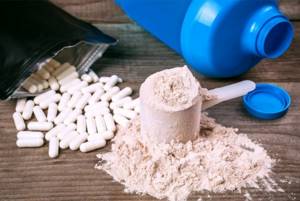
Photo: istockphoto.com
Protein absorption rate?
A favorite marketing ploy is fast- and slow-digesting protein , and people tend to immediately associate whey as a “fast” protein and casein as a “slow” protein.
Technically, there are differences in the degree of absorption, and the main ones are distributed - from fastest to slowest - as follows:
Hydrolyzed casein ≥ hydrolyzed whey > whey isolate ≥ whey concentrate > other protein sources > casein
Basically, these two hydrolysates are the fastest, followed by whey options, other protein sources, and finally casein protein.
But does it matter?
Hardly.
This is a confusion in research, and here are the main reasons:
- The rate of muscle protein synthesis seemed to be determined by how quickly the protein entered your bloodstream;
- However, these are short-term studies. If we just look at muscle mass (the thing we're really concerned about) - there is some evidence that slower proteins build more muscle in the long term;
- Thus, "slow" proteins may be better because they are absorbed more efficiently .
And although the rate of muscle protein synthesis of "faster" proteins is better than that of "slower" proteins, slow-digesting proteins actually produce more muscle mass . Therefore, concern about the rate of protein absorption is not justified for the average person.
